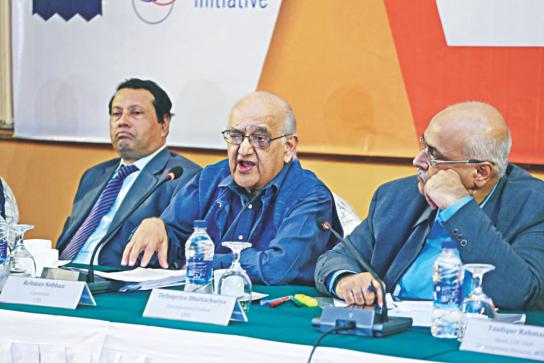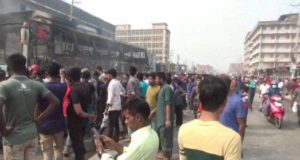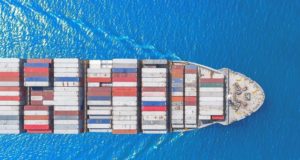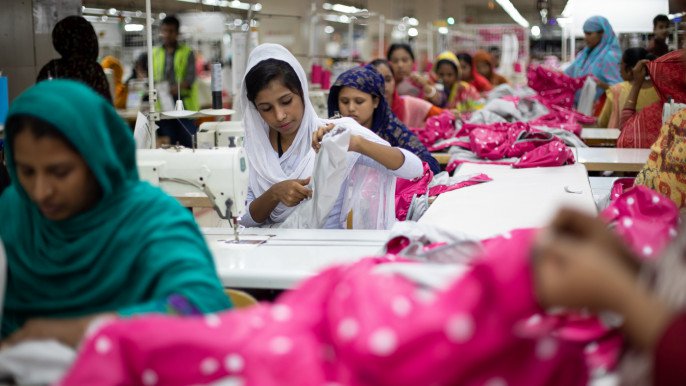Published in The Daily Star on December 01, 2017

Bangladesh should negotiate in the upcoming 11th WTO ministerial conference in Buenos Aires keeping in mind its graduation from the least developed country group to a developing country, a leading trade analyst said yesterday.
The World Trade Organisation (WTO) is an important platform for the participating nations for realising preferential trade benefits through discussions and negotiations.
Bangladesh is likely to be recommended by a United Nations committee for the graduation from the bloc in 2018, and could come out of the LDC group in 2024 if it can meet conditions.
Once the country graduates, it could lose special status in the trading system unless it successfully negotiates with key trading partners such as the European Union to retain the benefit for another three years.
“So, we have to keep in mind the non-LDC status during the negotiation in the WTO Ministerial Conference,” said Prof Mustafizur Rahman, distinguished fellow of the Centre for Policy Dialogue (CPD).
He spoke at a discussion on ‘towards 11th ministerial of the WTO: reclaiming the development agenda” at Lakeshore Hotel in Dhaka.
The CPD organised the discussion attended by government high-ups, businessmen, trade analysts from home and abroad, experts and academics.
The Ministerial Conference, or MC 11, is scheduled to be held in Argentina’s capital between December 10 and 13.
Rahman called for raising the issues of preferential trade treatment to retain duty benefit, rules of origin, subsidies in the fisheries sector, waiver in the service sectors, e-commerce and investment and trade facilitation in the upcoming MC11.
At the MC11, it is being anticipated that there may be a decision on fisheries subsidies, some progress with regard to public stockholding, and setting up of at least one working group on e-commerce, Rahman said in his keynote paper.
“Bangladesh should remain engaged in these discussions and safeguard its interests by putting forward proposals related to special and differential provisions, technical support and aid for trade,” he said.
The WTO agreements contain special provisions which give developing countries special rights and allow other members to treat them more favourably. These are called special and differential treatment provisions.
Prof Rehman Sobhan, chairman of CPD, said the world has changed completely because of the economic changes taking place worldwide.
Although the global trade has slowed over the last few years, trade growth in the Asian region has been robust.
The noted economist said the developing world is now the driving force and the global trade is taking place in the developing countries, specifically in Asian markets.
According to Prof Sobhan, 70 percent of the global capital and services are located in the Asian region.
As located in Asia, Bangladesh is a potential competitive trading partner worldwide. “It is not an accident,” Sobhan said.
Commerce Secretary Shubhashish Bose said the effectiveness of various WTO decisions has come under question now. Still, the LDCs need to discuss how they can benefit from the multilateral trading system under the WTO.
The LDCs and Bangladesh should also discuss the decisions of the previous WTO ministerial meetings and new issues should be raised in the upcoming three-day meet, Bose said.
Abu Ahmed, an honorary professor of economics at the University of Dhaka, said Bangladesh should not look only to the WTO but also make the best of the offers from different countries and regional trade blocs.
For example, he said China has offered Bangladesh duty benefits for about 5,000 products.
“Similarly, Bangladesh should explore business opportunities with the Asean [Association for South and East Asian Nations] countries, the BCIM [Bangladesh, China, India and Myanmar] corridor and the European Union.”
Debapriya Bhattacharya, another distinguished fellow of the CPD who moderated the discussion, said Bangladesh should get rid of the duty-free and quota-free obsession.
He said the Doha Development Agenda should be taken forward and Bangladesh should contribute to its implementation.
 CPD RMG Study Stitching a better future for Bangladesh
CPD RMG Study Stitching a better future for Bangladesh



